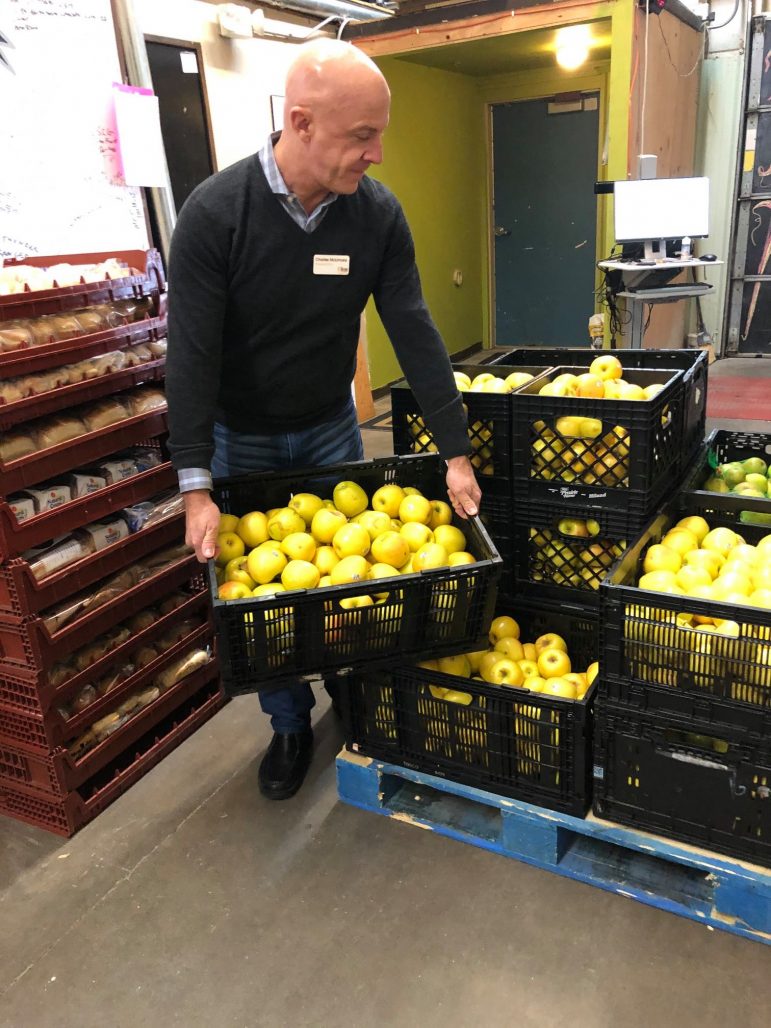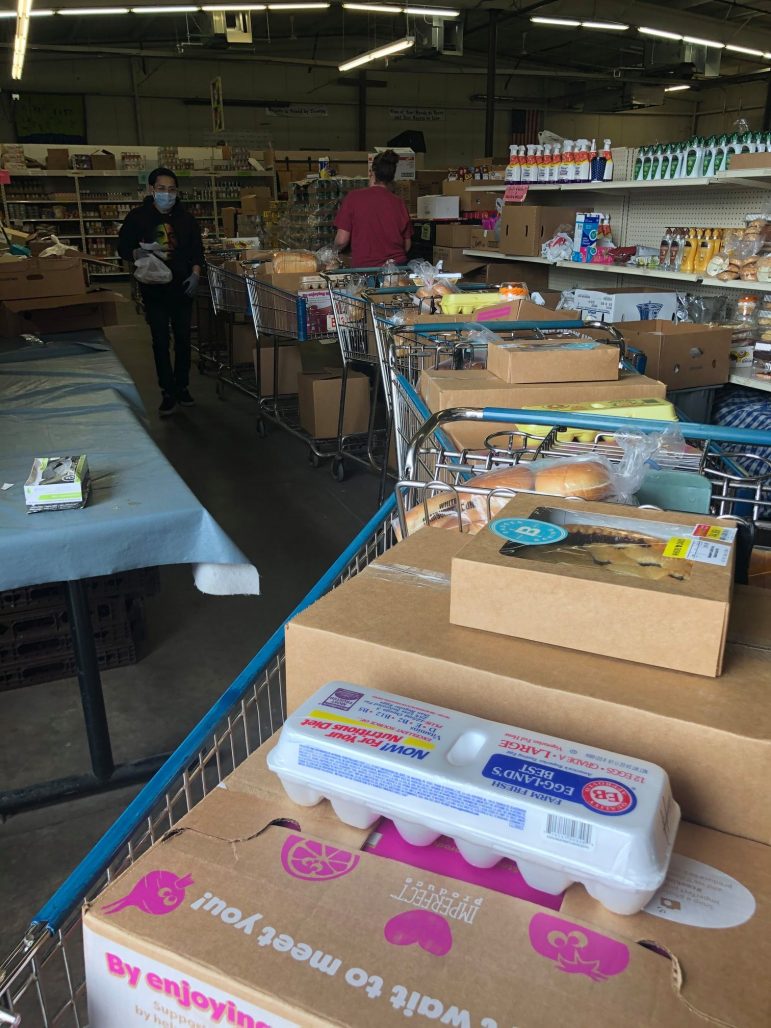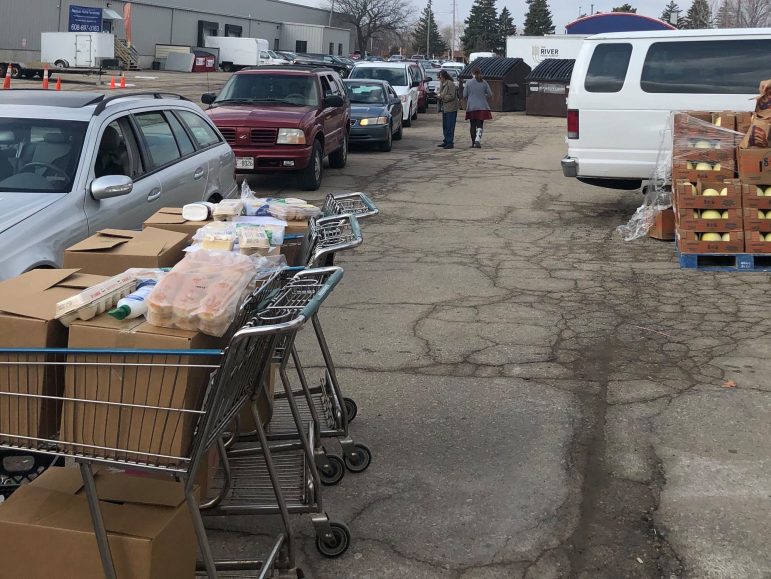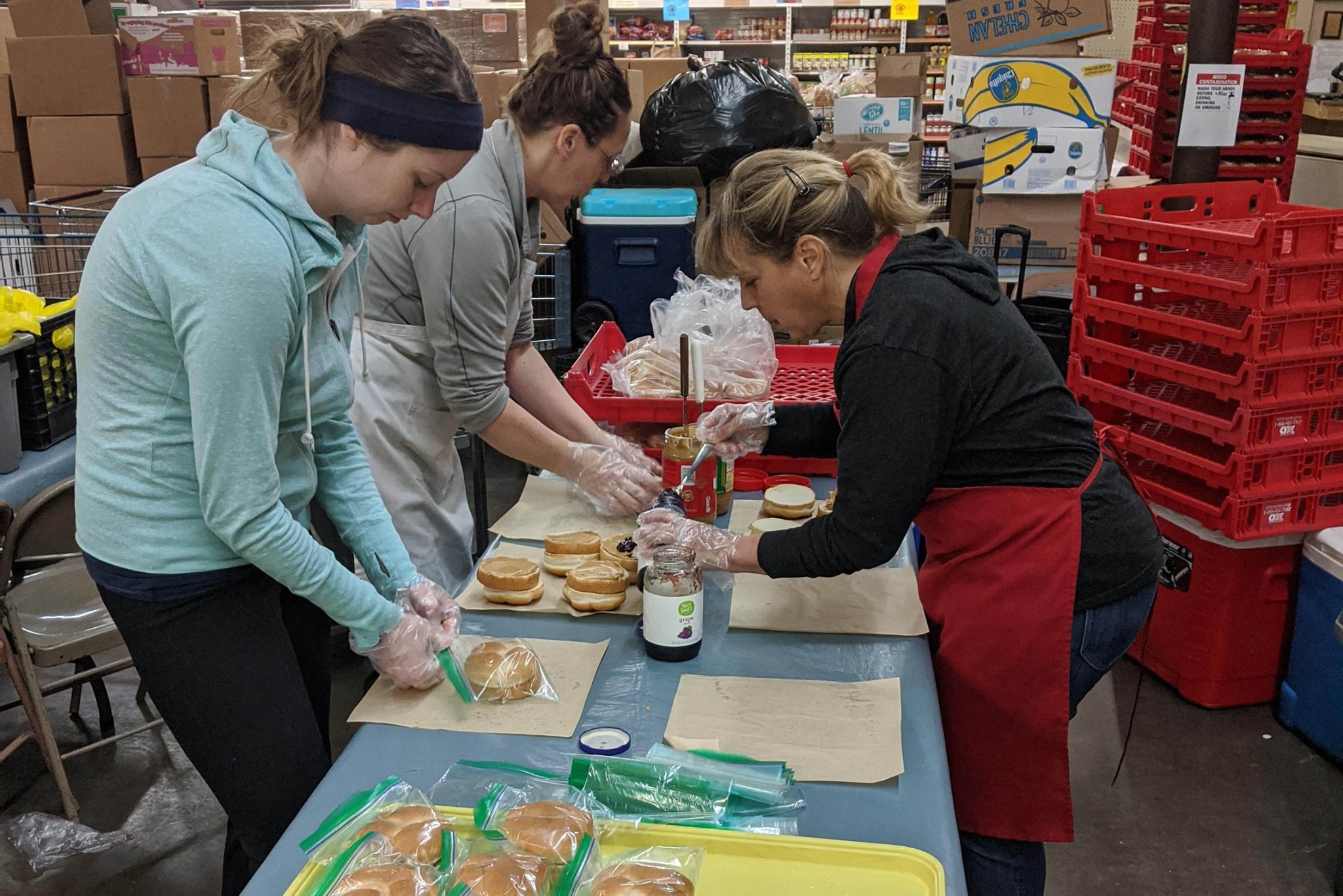When the River Food Pantry’s MUNCH program was initially threatened by the COVID-19 pandemic, a staff cook took it upon himself to not only continue serving the typical nine neighborhoods on Madison’s north side, but also to depart from the typical PB&J or turkey sandwich option. With school closings and social distancing measures in place, a lunch of taquitos seemed like the least the food bank could do to restore some sense of normalcy to the lives of these children.
When a global pandemic isn’t complicating operations at the River Food Pantry, staff and volunteers provide a wide array of services — from dishing out hot meals each week, to giving rides home from their facility each Friday night, to offering up clothes and household supplies for their constituents.
In 2019, RFP distributed over 66,000 lunches to school-age children and over 36,000 community meals, racking up a massive 2,400,000 pounds of food distributed.
While funding sources may become uncertain as Dane County continues to mitigate the outbreak’s impacts, the River remains open with revised hours (10am-3pm, Tuesday thru Thursday) and limited services.
Charles McLimans, RFP’s president and CEO, and his staff have stepped up to address community needs by keeping their mobile lunch program and curbside pickup pantry running amidst the chaos. Thanks to a handful of anonymous donors, the RIver Food Pantry has been keeping their doors open due to their recently-established COVID-19 Emergency Food Fund.

“The schools play a huge role in feeding kids, and that's not happening right now, so we're kind of in summertime mode without being able to prepare for that. The community is stepping up and making donations so that we can continue to purchase the product that we need to keep these programs going,” said McLimans. “We put it [the fund] out, and people really get our mission, they know that we are a grocery store for over 1,000 families a week and our mobile lunch program is touching hundreds of kids on a daily basis. And so us closing down is not an option.”
McLimans, who has returned to his Madison roots after moving around the country calling New York, Chicago, and Milwaukee home, isn’t new to handling these types of situations by any means. He has worked in hunger relief for the past 15 years — through thick and thin, highs and lows — which is proving to be helpful.
“I started working in this (hunger relief) right before the last great recession. And when people see friends and neighbors and family members being laid off and having to go to food pantries for the first time, it really hits home,” said McLimans. “And that's happening right now.”
“Having many of us who worked through the great recession and had to do a lot of heavy lifting through that, we've been really responding and we're used to it. Food banks across the country are known to be good at mobilizing for rapid response, for disaster types of scenarios,” said McLimans, “but the whole country is under an emergency scenario, all at the same time. That's unchartered territory... the system is very stressed.”
This dynamic of the entire country — and frankly, the world — being in a state of emergency is unsurprisingly frustrating and stressful for those continuing to work hard and provide services for those who need it. While Dane County is relatively affluent relative to other parts of the state, this pandemic and its impacts on employment, housing, and access to social services will likely interfere with the livelihoods of folks who have never faced poverty before.
In the first week of curbside delivery, RFP had 35 new households enroll into their program, according to McLimans, and that number is continuing to grow each week.
“There's this hunger relief network and I've been on a lot of calls with our partners and with their food banks, and everybody's really concerned that there are increases (in demand) already and we're just a few weeks into this,” said McLimans, noting the shift in demand as the outbreak continues. “We expect that to continue, and maybe once the government finally does something, once Congress finally acts and gets their act together, we will get some relief. Maybe that will help some people to get other resources, so that they can go to every grocery store and the emergency food network won’t have to bear such a heavy burden.”
As the local community has come together to pool together resources and support, McLimans and other hunger relief professionals can’t help but believe the government could be doing something more to lighten the load. They haven’t given up hope, however.
“I think that we are seeing more collaboration than we have in a long time in trying to come up with rapid solutions to a problem, a problem that is a global pandemic that is moving and changing by the hour,” said McLimans. “They certainly understand on both sides of the aisle that people need to eat and that people need to be safe.”
This inherent lack of nationwide preparation and crisis response readiness may unearth some systemic flaws in our society, according to McLimans.
“I think that many of the weaknesses that we have within our system, within the education system, within our healthcare system, they're all [being] beared right now. And so, when we emerge from this, we're going to be having some very different conversations,” said McLimans. “Too many people were like ‘the markets up, everything is great, everything is controlled by the market.’ Well, this shows by not investing in healthcare, not investing in schools, not investing in public infrastructure, not investing in a social safety net, that has really hurt our country's ability to respond to a national crisis rapidly.”
Regardless of their frustration, though, the food bank must go on. So, the RFP team has been coming up with some creative ways to meet the needs of their enrollees — even if those aren’t always food-related.

After receiving a desperate call from a mom whose kids are now at home, sans school supplies, the River Food Pantry decided to round up the spare notebooks, pens, markers and the like to distribute.
“That's something that a group could do, they could put together school supply bags and bring them in and we can start getting those out to people who have students at home,” suggested McLimans. “So that's just one example of thinking of clever ways that we can support each other as a community.”
While RFP is currently asking that folks do not bring in food donations from their home right now due to the health risk, larger group donations of certain goods — like school supplies — may be allowable.
Food Bridge, RFP’s partner program with NewBridge Madison and RSVP of Dane County, is also looking for healthy people comfortable with leaving their homes to deliver food pantry goods to their older clientele who are particularly at-risk.
Now is the time for the greater Madison community to lend one another a (socially distanced) hand, and organizations like the River Food Pantry are at the forefront of these efforts.
“I would just ask people that when we all emerge from this and figure out a new normal, just to remember that you have to come and volunteer and support the organizations that are really on the front lines and doing the heavy lifting right now.”
For more COVID-19 food insecurity updates and to donate, visit the River Food Pantry’s website.






